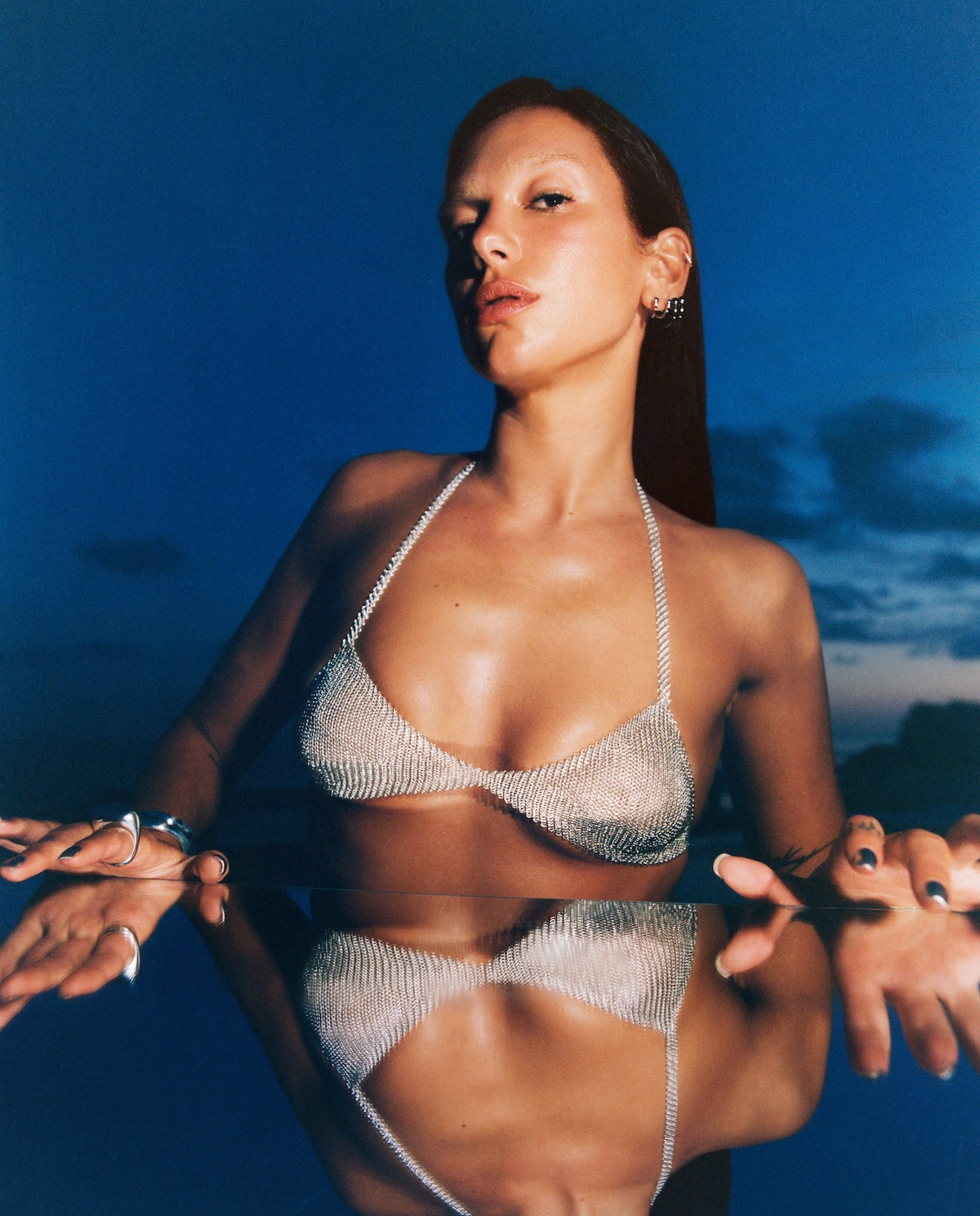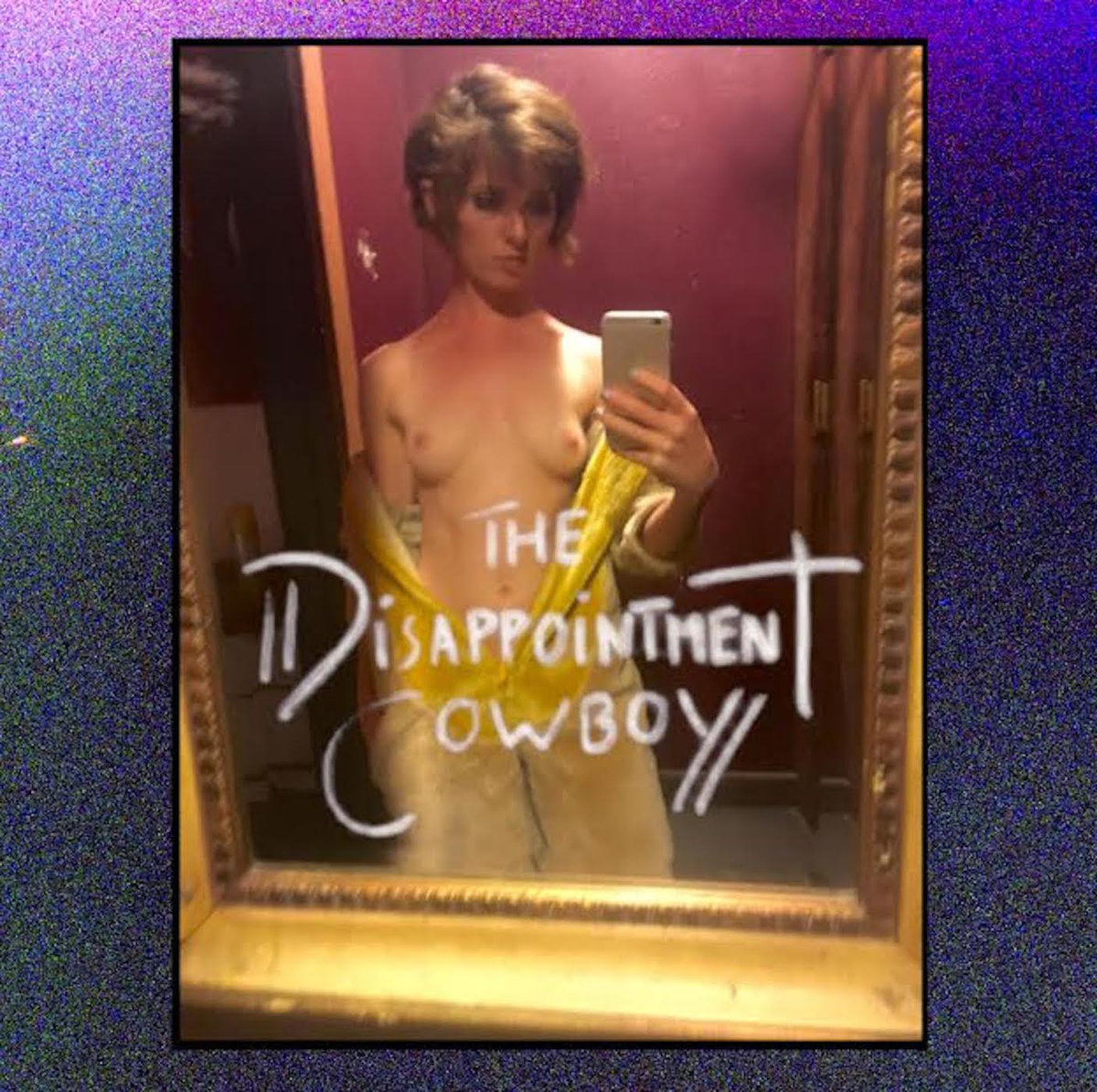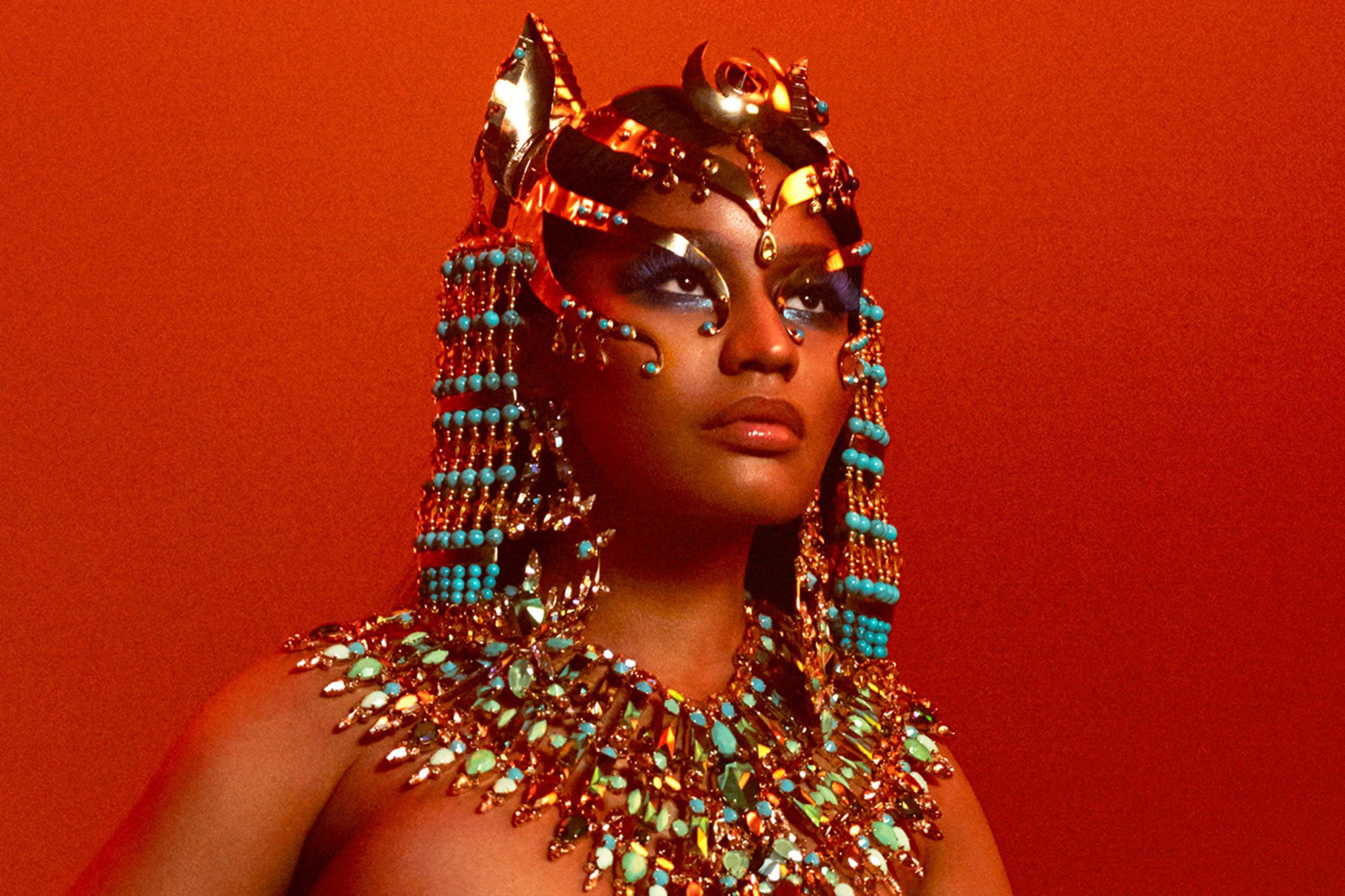Dua Lipa introduces a new sound in ‘Radical Optimism,’ an earnest and refreshing record on the lessons we learn in love.
Stream: ‘Radical Optimism’ – Dua Lipa
After nearly four years, pop sensation, Dua Lipa, has released her latest and most honest album yet – Radical Optimism.
The 11-track record was introduced to the world on May 3, 2024. Clocking in at about 36 minutes, Lipa strays a bit away from the sound we have come to know her for and introduces a more mellow, bright and breezy tone to her music. Although different, Lipa does not disappoint. Instead, Radical Optimism is the pure definition of cool, calm and collected.

The last time we received an album from Lipa, it was during 2020 when Future Nostalgia was released. But despite the way 2020 went, the record still resonated with people and gave them a reason to dance and sing. Filled with upbeat, disco-like tracks, Future Nostalgia went on to receive massive awards such as a Grammy Award for Best Pop Vocal Album and a Brit Award for British Album of the Year.
Due to its success, Lipa had solidified and established herself as a global pop star who provided fun, explosive bangers packed with energy. So, it’s no surprise that Radical Optimism became one of the most highly-anticipated albums of 2024 – especially after her hit track “Dance The Night,” from the “Barbie” movie, took over the past summer.
Radical Optimism hints at a new era for Lipa, where she seems vastly confident in who she is as an artist and the music she wants to put out.
As she takes a more tranquil stance within her music, it evokes a sweet vulnerability we have yet to see from the musician. But there is something so peaceful about the way she handles this delicate artistry move. It’s as if releasing this album is her breath of fresh air and a weight lifted off her shoulders. You can almost physically feel her bliss shining through.
Speaking of eras, as Lipa seems to be ending one and heading into another, coincidentally, she opens her album with that exact idea. “End of an Era” is a lively introduction to Radical Optimism as well as this new musical style Lipa is setting forth. With long drawn-out words, breathy notes and a slower beat, this track makes for a mystically alluring summer bop.

The next two songs on Radical Optimism are two of the three singles released off this album. “Houdini” is a song about disappearing in a relationship if you can’t make her stay. “I come and I go/ Tell me all the ways you need me/ I’m not here for long/ Catch me or I go Houdini,” she sings. This track is one of the more upbeat ones throughout the album and has underlying elements of ’80s nostalgia – which is different from the more modern pop-synth undertones “Training Season” captures.
As this song takes a faster tempo than any other track on the album, this is also the first track where Lipa starts to really open up. The concept of the song being that she is done telling people how to love her. Instead, she wants someone to come in and show her a love that is unknown and new to her, because the idea of having to teach someone the basics, to go through another “training season,” she’s done with and not interested in. With lyrics such as, “Are you someone that I can give my heart to?/ Or just the poison that I’m drawn to?” “I hope it hits me like an arrow/ Someone with some potential/ Is it too much to ask for, who understands?” and “Run when you hear that whistle blow/ Are you on my team?/ Or stuck on the sidelines waiting for someone to tell you to go?” you can see her vulnerability start to peak through. As she sings about her disappointment in past relationships, you know in order to have these walls and boundaries in place, her heart must have been shattered. The song nonchalantly alludes to the question, “Why go through another heartbreak when you can try to prevent it?”
But one of the most truthful and groundbreaking tracks on this album is “These Walls.” A beautiful yet heart rending song that showcases Lipa’s artistry in an abundance of ways. One, being her storytelling. As she sings about a love that’s fading, she takes on the perspective of walls and thinks about what they would say, if they could talk. Not only that, but her vocals are also excruciatingly painful, reflecting the heartbreak she is going through as she comes to the realization that the relationship needs to end but not having the guts to call it quits.
But if these walls could talk
They’d say, “Enough”
They’d say, “Give up”
If these walls could talk
They’d say, “You know”
They’d say, “You’re f**ed”
It’s not supposed to hurt this much
Ooh, if these walls could talk
They’d tell us to break up

What’s unique about Radical Optimism is how the themes tend to be the truths Lipa is liberating herself from.
And if one theme were to come out of Radical Optimism, it would be the hurt in moving on. We are used to hearing Lipa sing mostly about broken relationships she doesn’t necessarily care about and how fast she has moved on from them such as in “IDGAF” or “Don’t Start Now.” But, that is not the case for this album. Instead, we see more of her process in letting go, the hurt she feels and the heartache. She then ties in how that correlates to her detailed way of healing, setting boundaries and the hardships she has faced when moving on. “Whatcha Doing” encompasses this ideality almost to a T.
After midnight
Me and my thoughts alone
There’s a part of me
that wants to steal your heart
And a part that tells me, “Don’t”
‘Cause I’m no good at givin’ up control
Are you worried that I might find somethin’ wrong?
‘Cause I’m worried that I won’t
Throughout this track, Lipa demonstrates the back-and-forth turmoil one may feel when they finally meet someone new but are terrified of getting their heart broken again. Do I cave in? Do I put my walls up? What should I do? Through the song’s consistent rhythm and pulse it further highlights that clouded headspace, emphasizing the confusion one may experience when going through this. As she quickly sings the lines, “But if control is my religion, then I’m headin’ for collision. Lost my 20/20 vision, please,” it’s as if the words are spewing out of her mouth like someone who just lost control.
Whatcha doin’ to me, baby?
I’m scared to death
that you might be the one to change me
You’re in my head and now
you’re cloudin’ my decisions
Got me headin’ for collision
Whatcha doin’ to me, baby?
Oh, whatcha doin’ to me?

By following up that track with “French Exit,” another blunt tune, it feels like we have cracked our way into the core of the album. “It’s not a broken heart if I don’t break it. ‘Goodbye’ doesn’t hurt if I don’t say it, and I really hope you’ll understand it, only way to go is a French exit,” Lipa sings about abandoning a relationship. Her acknowledgement of dipping the situation and leaving someone stranded, is not only very straightforward, but is purely in the hope that by doing so, it won’t hurt as much.
It’s an idea she keeps returning to – avoiding any more pain. So as “Illusion,” the third and final single off this album approaches, it’s no surprise that Lipa states she knows when something seems fake, and she isn’t falling for it.
I already know your type,
tellin’ me the things I like
Tryin’ make me yours for life,
takin’ me for a ride
I already know your type,
think you can play your cards right
Don’t you know I could
do this dance all night?
Ooh, what you doin’?
Don’t know who you think
that you’re confusin’
I be like, “Ooh, it’s amusin'”
You think I’m gonna fall for an illusion
Within the final tracks of the album, we see the moving on process coming to fruition. “Falling Forever” hints at the potential start of a new relationship but brings forth the lessons she has learned in the past. Her strong vocals in this song, as well as how she fluctuates them up and down between high and lower notes effortlessly, compliments the falling feeling she is singing about.
“Anything for Love,” is by far one of the simpler yet immensely beautiful tracks on this record. It summarizes everything she has sung about so far in a perfect bow. The piano infused ballad and her stripped back vocals in the beginning of the song, bring in this serious tone. As she poses the question, “Remember when we used to do anything for love?” it makes you wonder about your own journey with the complicated emotion. It makes you go back to the time before you ever had your heart broken and how you truly would do anything for love. Now, we approach it with caution. We are more realistic and scared of broken promises. It’s a bittersweet realization Lipa draws attention to because you realize you have grown and know what you want in a relationship, but you also are not as willing to be risky or fight.
And I’m not interested in a love
that gives up so easily
I want a love that’s set on keeping me
When it hurts we don’t even think to cut it off
And I’m not interested in a heart
that doesn’t beat for me
I want a mind that meets me equally
When it’s hard it won’t ever
feel like it’s too much

“Maria” is another creative move done with excellence. Lipa gives thanks to the woman who loved her man before her. A concept you don’t see much on in the music industry but fits in so well with this album. It’s about the understanding that in order for someone to be such a great partner, they must have learned and grown from a previous one. So, although Lipa feels bad for the heartbreak someone must endure, she thanks the woman before her for making her man the man he is today – a man who can love her properly. She sings, “Deepest effect always comes from a cause. I’m better too from the ones that I’ve lost. Now, he is everythin’ I’d ever want. I wanna thank you for all that you’ve done.”
By the time we have reached the final song on Radical Optimism, we have experienced all the stages of moving on after a relationship besides one – acceptance and wishing the person the best. But that is what “Happy For You,” the final track on this record, exactly does: Dua Lipa ends the album with a sense of freedom. The song embraces the comfort of letting go. It welcomes the idea that you can love someone, know it’s not meant to be, acknowledge you have learned from each other and go off to be the people you are meant to be with the ones you are supposed to love.
I must’ve loved you more than I ever knew
Didn’t know I could ever feel
‘Cause I’m happy for you
Now I know everything was real
I’m not mad, I’m not hurt
You got everything you deserve
I must’ve loved you more than I ever knew
I’m happy for you
Radical Optimism may be slightly different from what we are used to hearing from Dua Lipa, but it is a creative masterpiece.
It is refreshing, innovative and unlike anything she has done in her career so far. Being blatantly honest might have just been the key to unlocking Lipa’s greatest work yet.
— —
:: stream/purchase Radical Optimism here ::
:: connect with Dua Lipa here ::
Watch: “Houdini” – Dua Lipa
— — — —

Connect to Dua Lipa on
Facebook, Twitter, TikTok, Instagram
Discover new music on Atwood Magazine
© Tyrone Lebon
Radical Optimism
an album by Dua Lipa


 © Tyrone Lebon
© Tyrone Lebon






